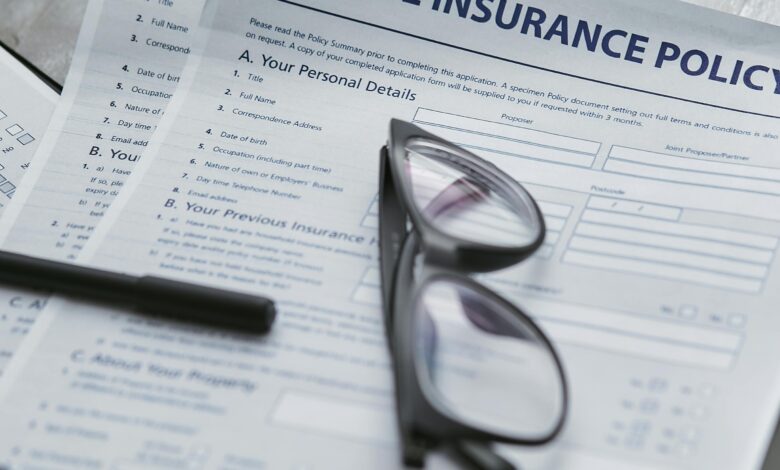The Best Insurance Policies for Small Businesses: A Comprehensive Guide

Running a small business is both exciting and challenging. While entrepreneurs focus on growth, customer satisfaction, and profitability, they often overlook one critical aspect of their operations: insurance . Insurance policies are not just a legal requirement in many cases but also a safety net that protects businesses from unforeseen risks. In this article, we will explore the best insurance policies for small businesses, why they are essential, and how to choose the right coverage for your specific needs.
Why Is Insurance Important for Small Businesses?
Before diving into the types of insurance policies, it’s crucial to understand why insurance is vital for small businesses. Unlike large corporations, small businesses often operate with limited resources and tighter budgets. A single lawsuit, natural disaster, or employee injury can cripple a small business financially. Insurance provides:
- Financial Protection : It covers unexpected costs, such as property damage, legal fees, or medical expenses.
- Peace of Mind : Knowing you’re covered allows you to focus on growing your business without constant worry about potential risks.
- Legal Compliance : Certain types of insurance are mandatory by law, depending on your industry and location.
- Credibility : Clients and partners are more likely to trust businesses that have proper insurance coverage.
Now that we understand the importance of insurance, let’s explore the best policies tailored for small businesses.
1. General Liability Insurance
What Is It?
General liability insurance is one of the most fundamental policies for any small business. It protects against claims related to bodily injury, property damage, and advertising injuries (such as libel or slander).
Why Do You Need It?
Imagine a customer slips and falls in your store, or an advertisement you published unintentionally offends someone. Without general liability insurance, you could face costly lawsuits. This policy covers legal fees, settlements, and medical expenses.
Who Should Get It?
Almost every small business, regardless of industry, should consider general liability insurance. Retail stores, restaurants, and service-based businesses are particularly vulnerable to these types of claims.
2. Professional Liability Insurance (Errors & Omissions)
What Is It?
Professional liability insurance, also known as errors and omissions (E&O) insurance, protects businesses that provide professional services or advice. It covers claims of negligence, mistakes, or failure to deliver promised results.
Why Do You Need It?
If a client accuses your business of making a mistake that caused them financial harm, this policy will cover legal defense costs and settlements. For example, a marketing consultant whose strategy fails to generate leads might face a lawsuit.
Who Should Get It?
Freelancers, consultants, accountants, lawyers, and IT professionals should prioritize this policy. Any business offering expertise or advice should consider E&O insurance.
3. Workers’ Compensation Insurance
What Is It?
Workers’ compensation insurance provides benefits to employees who suffer work-related injuries or illnesses. It covers medical expenses, lost wages, and rehabilitation costs.
Why Do You Need It?
In most states, workers’ compensation is mandatory if you have employees. Even if it’s not required, it’s a smart investment. Workplace injuries can happen anywhere—from a construction site to an office—and this policy ensures your employees are taken care of while protecting your business from lawsuits.
Who Should Get It?
Any business with employees, regardless of size, should carry workers’ compensation insurance. Industries with higher physical risks, such as manufacturing or construction, need it even more.
4. Commercial Property Insurance
What Is It?
Commercial property insurance protects your business’s physical assets, including buildings, equipment, inventory, and furniture, from perils like fire, theft, vandalism, and natural disasters.
Why Do You Need It?
Your business property is a significant investment. If a fire destroys your office or a storm damages your warehouse, commercial property insurance will help you recover quickly without draining your finances.
Who Should Get It?
Businesses that own or lease physical spaces—such as retail stores, restaurants, and manufacturing facilities—should prioritize this policy. Home-based businesses may also benefit if they use dedicated spaces for work.
5. Business Interruption Insurance
What Is It?
Business interruption insurance compensates for lost income during periods when your business cannot operate due to covered events, such as fires, floods, or other disasters.
Why Do You Need It?
Even if your business survives a disaster, the downtime can be devastating. This policy helps cover ongoing expenses like rent, payroll, and utilities until you’re back up and running.
Who Should Get It?
Businesses heavily reliant on physical locations or specific equipment—such as restaurants, salons, or manufacturing plants—are prime candidates for this coverage.
6. Cyber Liability Insurance
What Is It?
Cyber liability insurance protects businesses from data breaches, cyberattacks, and other digital threats. It covers costs associated with notifying affected parties, legal fees, and public relations efforts.
Why Do You Need It?
With the rise of remote work and online transactions, cyberattacks have become increasingly common. A single breach can expose sensitive customer data, leading to lawsuits and reputational damage.
Who Should Get It?
Any business that handles sensitive information—such as healthcare providers, e-commerce companies, and financial institutions—should invest in cyber liability insurance. Even small businesses storing customer emails or credit card details are at risk.
7. Product Liability Insurance
What Is It?
Product liability insurance protects businesses that manufacture, distribute, or sell products. It covers claims arising from injuries or damages caused by defective products.
Why Do You Need It?
If a product you sell causes harm to a customer, you could face a lawsuit. This policy covers legal defense costs, settlements, and judgments.
Who Should Get It?
Manufacturers, wholesalers, and retailers should consider this policy. For example, a toy maker whose product contains small parts that pose a choking hazard would need product liability insurance.
8. Commercial Auto Insurance
What Is It?
Commercial auto insurance covers vehicles used for business purposes. It includes liability coverage for accidents, as well as protection for vehicle damage and theft.
Why Do You Need It?
Personal auto insurance doesn’t cover business-related driving. If an employee gets into an accident while delivering goods or traveling for work, commercial auto insurance will step in.
Who Should Get It?
Businesses that rely on vehicles—such as delivery services, construction companies, and mobile technicians—need this policy. Even businesses with a single company car should consider it.
How to Choose the Right Insurance Policies for Your Business
Selecting the right insurance policies can feel overwhelming, but these steps can simplify the process:
- Assess Your Risks : Identify potential risks based on your industry, location, and operations.
- Understand Legal Requirements : Research which policies are mandatory in your area.
- Evaluate Coverage Limits : Ensure the policy limits align with your business’s needs.
- Compare Quotes : Shop around and compare quotes from multiple insurers to find the best rates.
- Consult an Expert : Work with an insurance broker or agent who specializes in small businesses.




